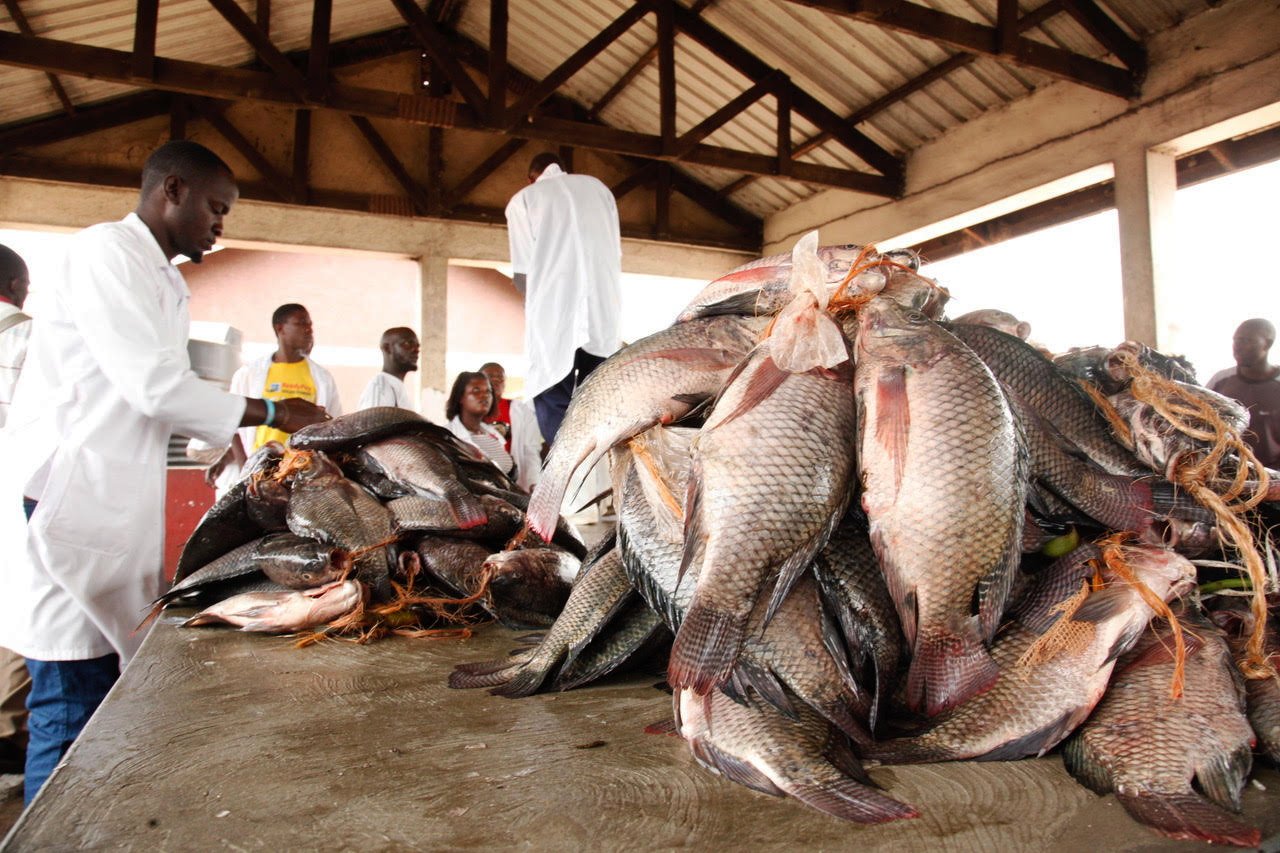Prime
Govt starts crackdown on unlicensed fishermen

A man sells fish at Gaba Landing Site in 2021. Registration of fishers and boats is done every two years while licensing is done annually. PHOTO/FILE
What you need to know:
- Ms Adoa said the fishers have been given enough time since December 31, 2022, and by now they are expected to have paid for their licences without fail.
- A vessel used or owned by a non-citizens pays Shs2m for a licence.
The Ministry of Agriculture, Animal Industry and Fisheries (MAAIF) has announced a nationwide crackdown on unlicensed fishermen following expiry of the grace period.
In April, the ministry extended the deadline for licensing of fisheries activities by two months which elapsed on May 31. This was in response to calls by the fishing communities on various lakes across the country.
The ministry had earlier set March 31 as the deadline for issuing new licences this year.
In an interview yesterday, the State Minister for Fisheries, Ms Hellen Adoa, said non-compliant fishermen are now considered illegal and will be arrested by soldiers under the Fisheries Protection Unit (FPU) once sighted fishing in any of the lakes.
Ms Adoa said the fishers have been given enough time since December 31, 2022, and by now they are expected to have paid for their licences without fail.
“Our fisheries compliance enforcement team has already started its work on all water bodies,” she said.
“Those [fishers] who have not paid for licences, even if they are found with the right fishing gear, will be arrested and prosecuted,” she added.
The minister said fishers who have failed to acquire licenses in previous years will also be forced to pay arrears once apprehended.
The National Chairperson of Association of Fishers and Lake Users (AFALU), Mr Geoffrey Senyonga Kambugu, said they have tried to sensitise the fishing community about the advantages of obtaining licences but some have not yet complied.
“Let the said crackdown be enforced so that those who have paid [for licenses] enjoy the benefits and value of their money because those who have not paid will still access the water bodies to fish like it has been the case before,” Mr Senyonga said.
While on his poverty alleviation tour in Kalangala District on May 26, President Museveni ordered screening of fishermen on Lake Victoria to check the rampant illegal fishing activities.
According to Mr Museveni, the government will not inject more money in cage farming before the lake is cleared of illegal fishermen.
“This [lake] is like a mine that doesn’t have rules and regulations. There must be control. We should own this. Fishermen must have permits and be fully registered. I have given you two months, I shall come back,” the President told the leaders.
Registration of fishers and boats is done every two years while licensing is done annually. Both registration and licensing are intended to regulate fishing and avert depletion as a result of illegal fishing methods.
To get licensed , a fisherman is required to provide Tax Identification Numbers (TIN), which is obtained from any nearest Uganda Revenue Authority office (URA) office or National Identification Cards for Nationals and passports for non-Ugandans.
Available statistics at the Ministry of Agriculture, Animal Industry and Fisheries indicate that 14,600 boats had by March been registered on Lake Victoria, of which 9,306 are licensed, accounting for 64 percent of the registered boats.
The first attempt by the government to register fishermen and boat owners was in 2011, but the programme stalled after the government failed to secure funds. The ministry had earlier set Shs100,000 as annual license fee for small boats and Shs200,000 for large scale fishing boats.
However, effective last year, the ministry announced new fees and any vessel operating on lakes such as Victoria, Albert, Kyoga, Edward, George and Wamala is supposed to pay Shs100,000 as licence fee while vessels on Lake Nakivale and other minor lakes are charged Shs50,000.
Those operating on swamps, rivers and dams pay Shs25,000. A section of fish dealers have since last year complained that they were being charged exorbitantly.
A vessel used or owned by a non-citizens pays Shs2m for a license.
A fish truck with less than five tonnes is required to pay a license of Shs250,000 while a truck of five to 10 tonnes pays Shs750,000. Each fish processing factory pays Shs3m.
The fees
Any vessel operating on lakes such as Victoria, Albert, Kyoga, Edward, George and Wamala is supposed to pay Shs100,000 as licence fee while vessels on Lake Nakivale and other minor lakes are charged Shs50,000.
Those operating on swamps, rivers and dams pay Shs25,000.
A vessel used or owned by a non-citizens pays Shs2m for a licence.




